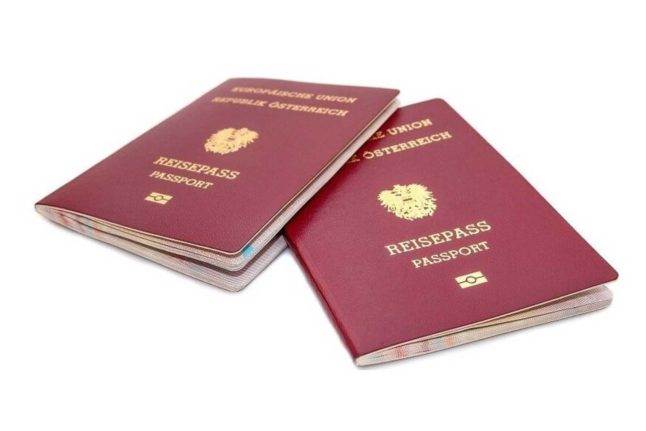Austria’s opposition SPÖ party (Social Democrats of Austria) is calling for easier access to Austrian citizenship.
As The Local has previously reported, Austria has some of the strictest citizenship requirements in Europe.
The party argues there should be a legal right to citizenship after six years of legal residence, provided all other criteria are met.
At ten years’ continuous residence, Austria has one of the longest naturalisation processes of any European country.
COMPARE: Which European countries have the toughest rules for gaining citizenship?
The SPÖ also want children born in Austria to automatically receive citizenship if one parent has been legally resident in Austria for five years.
Currently, only children born to an Austrian citizen mother automatically become Austrian citizens themselves at birth.
But if only the father is Austrian and the parents are not married, then an acknowledgement of paternity (Vaterschaftsanerkenntnis) can be made for the child to become Austrian.
In cases like this, children can also have dual citizenship.
The party also called for federal government fees of (currently €1,115 euros) for naturalisation to be canceled and individual state fees, to be standardised at a correspondingly low level.
Under the new plan, the rules would also be relaxed with regard to receipt of social benefits.
Citizenship would then be open to all those who have not received social assistance benefits in at least 36 months in the past six years.
In addition, the SPÖ want to replace the existing citizenship exam with a course in which participants would help to “make our basic rights and democracy tangible in a participatory way”.
READ MORE:
- What you need to know about applying for Austrian citizenship
- How much does it cost to become an Austrian citizen
Could such a proposal pass?
The reform efforts come from discussions which started at the SPÖ party conference in 2018 which later morphed into a Migration Working Group.
The proposals as laid out above were passed unanimously by the SPÖ’s executive committee.
However, while the centre-right SPÖ may be in favour, the proposals are also subject to significant opposition.
Interior Minister Karl Nehammer and Integration Minister Susanne Raab (both from the centre-right ÖVP) rejected the plans.
Herbert Kickl, the new leader of the far-right FPÖ, criticised the plans and said it would bring “new voters through naturalisations on the assembly line”.
Given the opposition, it is unlikely that the plans would become incorporated under the current government, but they may become a key plank in the Social Democrats policies in the lead up to the next Austrian election in 2024 – particularly considering the degree to which they are supported by the SPÖ.



 Please whitelist us to continue reading.
Please whitelist us to continue reading.
Member comments